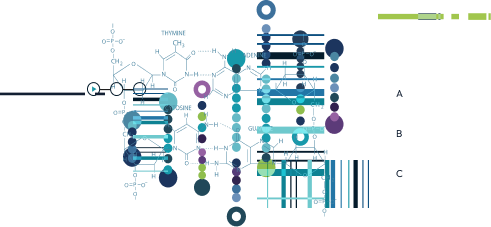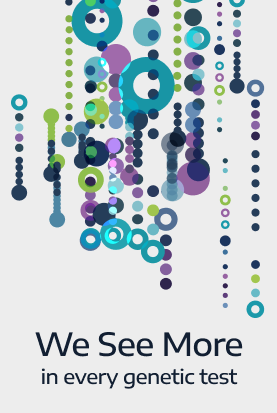News Center

National kidney month: Literature round up
- By Variantyx, Inc
- Posted in Clinical Education
March is National Kidney Month, and Thursday March 12, 2020 is World Kidney Day. Both strive to raise awareness about kidney health and to promote measures for prevention and detection of kidney disease.
Given our commitment to the use of whole genome sequencing (WGS) for the diagnosis of rare inherited disease, last year we chose to publish a post shining a spotlight on hereditary kidney disorders. Only 10% of cases are hereditary in nature, but the proportion is significantly higher in children presenting with symptoms of kidney disease. In fact, there are more than 60 different genetic diseases that can affect kidney function. Many are very rare, but some are relatively common. We profile 11 of them here.
This year we’re taking a different approach, taking a survey of recent literature that’s influencing the way clinicians may approach genetic testing and treatment decisions for patients presenting with symptoms of kidney disorders now and in the future.
WGS as first line of diagnosis for SRNS
Genetic tests in children with steroid-resistant nephrotic syndrome 1
In this review, the author considers the genetic testing options available for children presenting with steroid-resistant nephrotic syndrome (SRNS), a common cause of chronic kidney disease in this demographic that often progresses to end-stage renal disease. Large cohort studies have determined that approximately 30% of childhood-onset SRNS cases are genetic in origin, with significant clinical and genetic heterogeneity. Definitive molecular diagnosis has the potential to:
- Minimize and avoid diagnostic procedures like kidney biopsies that are potentially harmful
- Provide insights into possible treatments
- Predict prognosis
- Enable more informative genetic counseling
- Identify novel disease-causing variants and genes that may clarify the pathogenic mechanisms of SRNS
Genetic testing is recommended for all pediatric patients, with multiple testing options discussed. WGS is discussed as an option for improved exon, regulatory and intronic region coverage as well as improved analysis of copy number and structural rearrangements. It is suggested as a second-line test, but only because of presumptions about cost and a long analysis period – neither of which are specific to Genomic Unity® testing.
Gene panels targeting kidney disorders
A kidney-disease gene panel allows a comprehensive genetic diagnosis of cystic and glomerular inherited kidney diseases 2
Published in 2018, this article is a little older. But it presents a targeted analysis strategy that focuses on 140 genes that are associated with, or causative for, cystic or glomerular nephropathies with very good results: in a diagnostic cohort of 207 patients with suspected inherited cystic disease and 98 patients with glomerular disease, causative mutations were found in 78% and 62% of patients respectively.
This study indirectly highlights the power of WGS and the in-silico panel approach discussed in recent posts. In-silico panels provide the option to perform a targeted analysis while keeping the door open to reflexing to a broader exome or genome wide analysis in the event of a negative result. For more information on in-silico panels, see our recent post here. With the information in this article as an initial guide, we’ll be looking into the possibility of expanding our in-silico Analyses to a targeted analysis of nephrotic syndromes. In the meantime, our Genomic Unity® Exome Plus Analysis provides a broad phenotype-driven analysis.
Genetic influencer of cystic kidney disease severity
Mouse genetics reveals Barttin as a genetic modifier of Joubert syndrome 3
More so than the other articles, this publication underscores the importance of ongoing basic research. The authors use a mouse model to explore potential genetic modifiers that influence the severity of cystic kidney disease in patients with Joubert syndrome caused by CEP290 variants. They find that co-occurring variants in the Bsnd gene have significant association with more severe kidney dysfunction in Cep290 deficient mice – a finding that is consistent with the association of a common BSND variant with more severe kidney disease in a cohort of human Joubert syndrome patients.
As it develops further, WGS testing has great potential to provide contextual information beyond a molecular diagnosis that may influence treatment and/or surveillance planning. Because the patient’s entire DNA has been sequenced, as studies like this identify co-occurring genetic modifiers of importance it will be possible to retroactively go back and reanalyze the data for further insights.
References
-
Mouse genetics reveals Barttin as a genetic modifier of Joubert syndrome. Ramsbottom SA, et al. Proc Natl Acad Sci U S A. 2020 Jan 14;117(2):1113-1118. doi: 10.1073/pnas. PMID 1912602117
